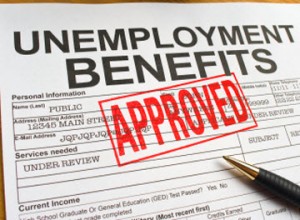Unemployment Benefits in the UK
 Although the height of the unemployment crisis from the recent recession is over, there is still an unemployment rate of 5.5% in the UK. This represents almost 2 million Britons out of work and seeking employment in the UK. Over 750,000 people are currently enrolled in JSA, the primary benefit for those out of work but still actively seeking employment.
Although the height of the unemployment crisis from the recent recession is over, there is still an unemployment rate of 5.5% in the UK. This represents almost 2 million Britons out of work and seeking employment in the UK. Over 750,000 people are currently enrolled in JSA, the primary benefit for those out of work but still actively seeking employment.
If you have recently been terminated, laid off or put out of work for any reason, being aware of what support mechanisms are in place to help you get back to work and receive monetary support during this period is crucial. This article will guide you through the benefits you may be entitled to if you are unemployed for any reason. In addition to the information here, you can use a benefits calculator to see what you may be entitled to based on your circumstances.
Unemployed, but Seeking
If you are unemployed in the UK but are still actively seeking employment there are a couple of options to receive government support during this time.
Job Seeker’s Allowance (JSA)
The first and most used benefit for those unemployed but still seeking work is the government program, Job Seeker’s Allowance. The JSA is comprised of two main initiatives, supported from different funding streams.
Contribution-based
The first funding stream is considered the contribution based JSA and is available to those that were previously employed and paid into the National Insurance for at least the previous two years. If you have paid into NI for this period you will receive the maximum allowance of £57.90 for 16-24 year olds or £73.10 for those over the age of 25 weekly for 182 days. If you do not find work within this time period, then you could apply for income-based JSA after this period.
Income-based
Income-based JSA are for those applicants that have never held a job or those that did not apply for contribution based JSA or have run their course of contribution-based JSA and still have not found work. Income based JSA eligibility is very clear.
• You must be over 18, but under the state pensioner’s age.
• You must not be enrolled in full-time education.
• You must be a current resident in England, Wales or Scotland.
• You must be available and currently seeking work.
• If you do work, it must be less than 16 hours per week.
• Your partner must work less than 24 hours per week.
• You must have less than £16,000 in savings.
• After the application, you must also attend a JSA interview.
Your total assets are also considered when applying for JSA. If your total family earnings including pensions, earnings or any savings is over £6000 income annually, it will affect the amount of JSA you will receive. The amount of JSA will decrease the more your income increases over that amount.
Young People and Education
There are rare instances for 16 and 17 year olds to be eligible for JSA, but you must contact your local Jobcentre Plus to see if you qualify. 18 and 19 year olds are not eligible for JSA if they are in full-time education, or if their parents are still receiving the Child Benefit for them.
If you are in school part time, you are eligible for JSA as long as you meet two stipulations. You must accept a job if you are offered one, and you must agree to all work seeking activities as laid out by your work coach.
What You’ll Get
Income-based JSA results in payments every two weeks and paid directly into an account. Those aged 18-24 receive £57.90, 25 or over receive £73.10 and couples that jointly applied for JSA will get £114.85 per week. However these payments and benefits can be stopped for a number of reasons, mostly dealing with the failure to listen to your work coach, failing to apply for jobs or turning down training or jobs.
Unemployed, not Seeking
There could be a number of reasons that are preventing you from searching for a job. These reasons often are life choices or impediments that may qualify you for alternate income benefits.
Employment & Support Allowance (ESA)
One the main reasons to receive a benefit other than JSA is that you may be ill or disabled. In these two cases you may be eligible for ESA benefit payments. ESA has two separate claimants, those that may be able to go back to work and those that will not be able to work. This assessment is based on a work capability assessment to determine the extent of your illness or disability.
After which you will be placed in either group. The work-related activity group is where you will be required to have regular interviews with an advisor to follow up on your progress and to determine the amount of work-related activities you could perform. If placed in the support group, you will not be required to have interviews.
Eligibility for ESA requires that you be under pension age, not receiving JSA, Statutory Sick Pay, Statutory Maternity Pay and have not returned to work.
As with JSA, ESA is a two-fold benefit based either on your contributions to National Insurance or if you have not contributed to NI. If you receive contribution ESA you may also be eligible for income-based ESA if you have a low income. In either case there is no time limit on how long you can claim ESA.
Income Support
Income support payments are paid to those individuals that have not signed on as unemployed and seeking employment and are in a low income situation. You must work less than 16 hours a week and you and your partner must have a low income. If you qualify, you would receive at least £57.90 per week.
Benefit Cap
For any government benefits, there is a cap limit. This cap limit applies to most government paid benefits and limits your total weekly benefit across all benefit programs with a few exceptions. This cap is £500 per week for couples or single parents whose children live with them and £350 per week for single adults without children or whose children do not live with them.
These are the main benefit support payments for unemployed individuals in the UK. If you are in need of emergency cash their are a few loans for unemployed people available but these are very specific to essential living needs and not entertainment or debt consolidation.





hi there i am seeking advice i am claiming one payment each month from universal credit but the monthly payment is not lasting the month is there an loans that i can apply for to be accepted for to deducted from my one payment each month can u help for any schemes that i can apply for
thanks